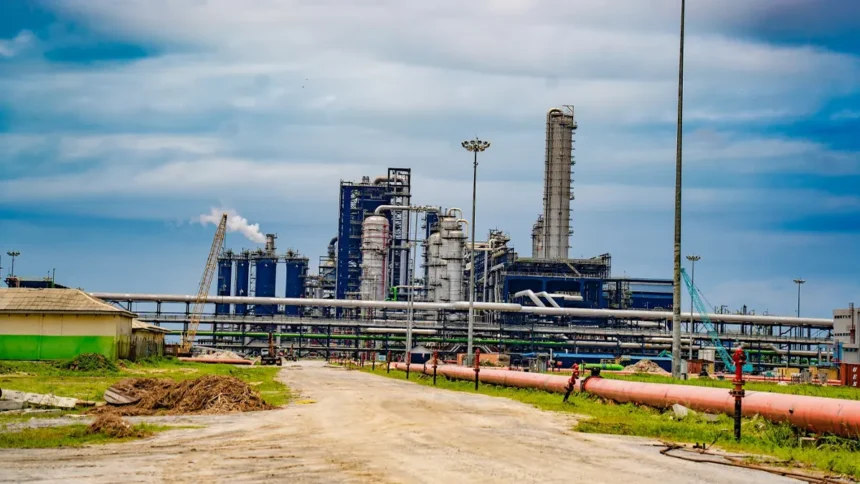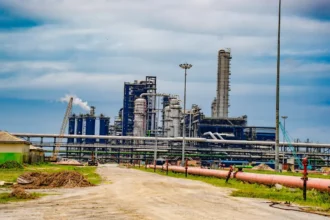During a press briefing in Lagos, a major expansion of the Dangote Petroleum Refinery. The facility’s capacity will increase from 650,000 barrels per day to 1.4 million barrels per day, a move that would make it the world’s largest refinery built on a single site. “We are officially announcing the expansion of the Dangote Refinery, which will grow from 650,000 to 1.4 million barrels per day. Once completed, it will surpass India’s Jamnagar Refinery to become the largest single-site refinery ever built”, said Aliko Dangote at the press conference in Lagos.
This ambitious project is part of Dangote’s broader vision to ensure that Africa particularly Nigeria takes control of its energy value chain. “This expansion reflects our confidence in Nigeria’s future, our faith in Africa’s potential, and our commitment to building the continent’s energy independence”, he emphasized.
Technical and strategic stakes
Commissioned in 2023, the Dangote Refinery already represents a technological milestone. It processes Nigerian crude oil into refined products for both domestic and regional markets. The new expansion will drastically reduce Nigeria’s dependence on fuel imports, while positioning the country as a major supplier for other African nations. Located within the Lekki Free Trade Zone in Lagos, the expansion aims to tackle several key challenges reducing Nigeria’s reliance on imported refined petroleum products, despite being a major crude producer, leveraging rising energy demand across Africa and new export opportunities and uing experience gained from the first phase to lower both construction time and costs for the next stage.
10% of equity open to investors
To finance the expansion, the Dangote Group plans to open up to 10% of the refinery’s capital to new investors and raise approximately $5 billion from financial partners, including the African Export-Import Bank (Afreximbank). According to the group, construction will span three years, depending on market interest and available capital. “It will all depend on how well the Nigerian market can absorb the stake we intend to offer”, Dangote explained.
65,000 jobs to be created
The project’s expected economic ripple effects are immense. The expansion is projected to create around 65,000 jobs, the vast majority for Nigerian workers. “We will need about 65,000 workers for this new phase, most of whom will be Nigerians”, Dangote noted, stressing the project’s impact on local employment.
Beyond job creation, the increased refining capacity could help lower import costs, strengthen energy sovereignty, and enhance Nigeria’s global standing in refined oil markets.
However, significant hurdles remain. Funding though partly secured remains a key challenge, and the timeline is ambitious. Critical issues such as crude supply, logistics, maintenance, environmental management, and global competitiveness will require close monitoring.














